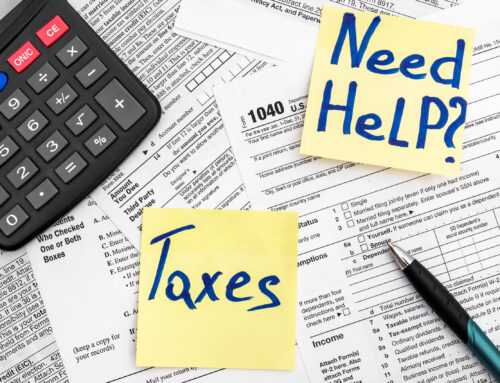Introduction to Payroll Tax vs Income Tax
Understanding the difference between payroll tax and income tax is essential for individuals and small businesses alike. At Curler Accounting & Tax Services, LLC, we often hear questions like “What’s the difference between these two types of taxes?” or “What should I do if I forget to pay one of them?” Whether you’re an employer managing payroll or a taxpayer planning your personal finances, it’s important to know how each tax works and what the consequences of missing a payment may be.
In this guide, you’ll learn the key distinctions between payroll tax vs income tax and what actions you can take if you accidentally miss a payment. With expert insights from Matt Curler, CPA and owner of Curler Accounting, we’ll help you stay compliant and avoid unnecessary penalties.
What Is Payroll Tax?
Payroll Tax Defined
Payroll tax refers to taxes that employers are required to withhold from employees’ wages and submit to the government. These taxes fund programs like Social Security and Medicare. Both the employer and employee share this responsibility. The employer also pays a matching amount for Social Security and Medicare tax.
Types of Payroll Tax
Employee and employer payroll taxes include:
– Social Security tax – Medicare tax – Federal and state unemployment taxes (FUTA and SUTA) – Local payroll taxes in certain jurisdictions
Who Pays Payroll Tax?
Employers are in charge of collecting and remitting payroll taxes. Employees see deductions on their paychecks, but it’s the employer’s duty to send those payments to the IRS and other government bodies. Business owners who have employees are legally responsible for making payroll tax deposits on time.
Missing a payroll tax payment can lead to significant penalties, which is why Curler Accounting provides hassle-free payroll processing to help small businesses stay on top of their tax obligations.
What Is Income Tax?
Income Tax Defined
Income tax is a tax you pay on money you earn, whether through a job, business, investments, or other sources. The federal government—and often state governments—require individuals and businesses to pay income taxes based on earnings and filed tax returns.
How Income Tax Works
Most workers see income tax withheld automatically from their paychecks based on the earnings they report on their W-4 form. Self-employed individuals and business owners often pay estimated taxes quarterly instead of through payroll withholding.
Who Pays Income Tax?
Everyone with taxable income must pay income tax. This includes:
– Employees – Self-employed individuals – Business owners – Investors
Curler Accounting offers personalized tax preparation and planning services designed to help individuals and small business owners minimize liabilities and avoid surprises at tax time.
Payroll Tax vs Income Tax: Key Differences
Now that you understand the basics, let’s compare payroll tax vs income tax side by side.
Source of the Tax
– Payroll tax is taken directly from wages by employers. – Income tax is either withheld by employers or paid directly by taxpayers through estimated payments
Who Pays
– Payroll tax is shared between employer and employee. – Income tax is only paid by the person or business earning the income.
Purpose of the Tax
– Payroll tax funds programs like Medicare and Social Security. – Income tax funds general government operations, including defense, infrastructure, and public services.
Payment Schedule
– Payroll tax must be deposited regularly, often biweekly or monthly. – Income tax is paid either through payroll withholding or quarterly estimated payments.
Penalties for Missing Payments
– Payroll tax penalties are severe; the IRS views payroll tax as trust money that must be submitted. – Income tax penalties can also be considerable but are typically less aggressive than payroll tax penalties for small errors.
Curler Accounting helps our clients avoid both kinds of tax troubles through regular bookkeeping, payroll solutions, and proactive tax planning.
What Happens if You Miss a Payroll Tax Payment?
Penalties and Interest
If you fail to remit payroll taxes on time, the IRS imposes hefty penalties. These penalties can include:
– Failure to deposit penalty: Ranges from 2% to 15% depending on how late the payment is – Trust Fund Recovery Penalty: Can hold business owners personally liable – Additional interest charges on unpaid amounts
IRS Enforcement
The IRS takes missed payroll tax payments very seriously. Unlike many other debts, the government can pursue aggressive collection actions including:
– Liens against business property – Asset seizure – Garnishment of future income
How Curler Accounting Can Help
At Curler Accounting, we recommend setting up automated payroll processes to reduce the risk of missed payments. If you’re already behind, our IRS representation service can help negotiate with the IRS and create a path to compliance.
What Happens if You Miss an Income Tax Payment?
Late Payment Penalties
If you miss an income tax payment, the IRS will charge:
– A 0.5% monthly penalty on the unpaid tax – Up to a maximum of 25% over time – Interest on the unpaid tax and penalties
Potential Legal Action
Although the IRS typically gives more leeway for missed income tax payments than payroll tax errors, failure to take action can result in serious consequences:
– Tax liens – Wage garnishments – Compounded interest amounts
Curler Accounting Solutions
Matt Curler and the team at Curler Accounting guide clients through payment plans, penalty abatement requests, and IRS negotiations. We help you stay informed so small mistakes don’t turn into large financial issues.
I Missed a Tax Payment—What Should I Do?
Step 1: Don’t Panic
It’s easy to feel overwhelmed when you realize you’ve missed a tax deadline, but swift and informed action is key. Addressing the issue early increases your chances of reducing penalties.
Step 2: Contact a Tax Professional
Schedule a consultation with a CPA like Matt Curler at Curler Accounting. We assess your situation and help you understand the financial and legal implications.
Step 3: File Any Necessary Paperwork
If you haven’t filed a required return or report, do so immediately. Filing even when you can’t pay ensures you avoid additional late filing penalties.
Step 4: Arrange a Payment Plan
The IRS offers installment agreements and short-term payment options. Curler Accounting can help you assess which option fits your situation and prepares the paperwork for you.
Step 5: Plan for the Future
Work with your tax advisor to avoid missing other deadlines. At Curler Accounting, we help our clients set up systems for better tax compliance, including automated payroll solutions, tax preparation schedules, and personalized planning strategies.
Common Mistakes to Avoid
Assuming Payroll Software Is Always Accurate
Many small business owners rely on payroll software, but technology can still make mistakes. It’s essential to review payroll reports regularly. Curler Accounting offers full-service payroll monitoring so you can trust that your payroll tax filings are correct every time.
Ignoring IRS Notices
The IRS will send letters if there’s an issue, but many ignore them. Always open and respond to these letters quickly. Curler Accounting can interpret these notices and help develop a response plan to resolve concerns effectively.
Missing Quarterly Deadlines
Self-employed individuals must stay on top of quarterly estimated taxes. Missing even one payment can mean penalties. Curler Accounting tracks these deadlines for our clients, so you don’t miss a single due date.
Why Choose Curler Accounting?
With over 20 years of experience in tax, accounting, and payroll services, Matt Curler built Curler Accounting to serve the real needs of individuals and small businesses in Mequon and the surrounding areas, including Washington County and communities north of Milwaukee. Matt’s background in the military and law enforcement shines through in his disciplined, detail-oriented financial services.
Clients trust Curler Accounting because of our:
– Personalized service tailored to each client – Military-grade integrity and reliability – Expertise in payroll, tax planning, and small business growth – Strong community values and commitment to public service
By choosing Curler Accounting, you’re working with professionals who genuinely care about your financial success. Our dedication goes beyond just completing forms—we help you understand your finances and take control of your future.

Final Thoughts on Payroll Tax vs Income Tax
Knowing the key differences between payroll tax vs income tax can help you avoid expensive mistakes. Payroll taxes are rigid and closely monitored, especially for employers. Income taxes allow a bit more flexibility, but both must be handled carefully and on time to stay compliant.
If you’ve missed a payment—don’t wait. Whether it’s payroll or income-related, Curler Accounting can help you correct the error and prevent future issues. Our mission is to make financial management simple, stress-free, and customized to your unique needs. Contact us today and take the first step toward better financial health. Let Curler Accounting help you regain control and stay on track.






